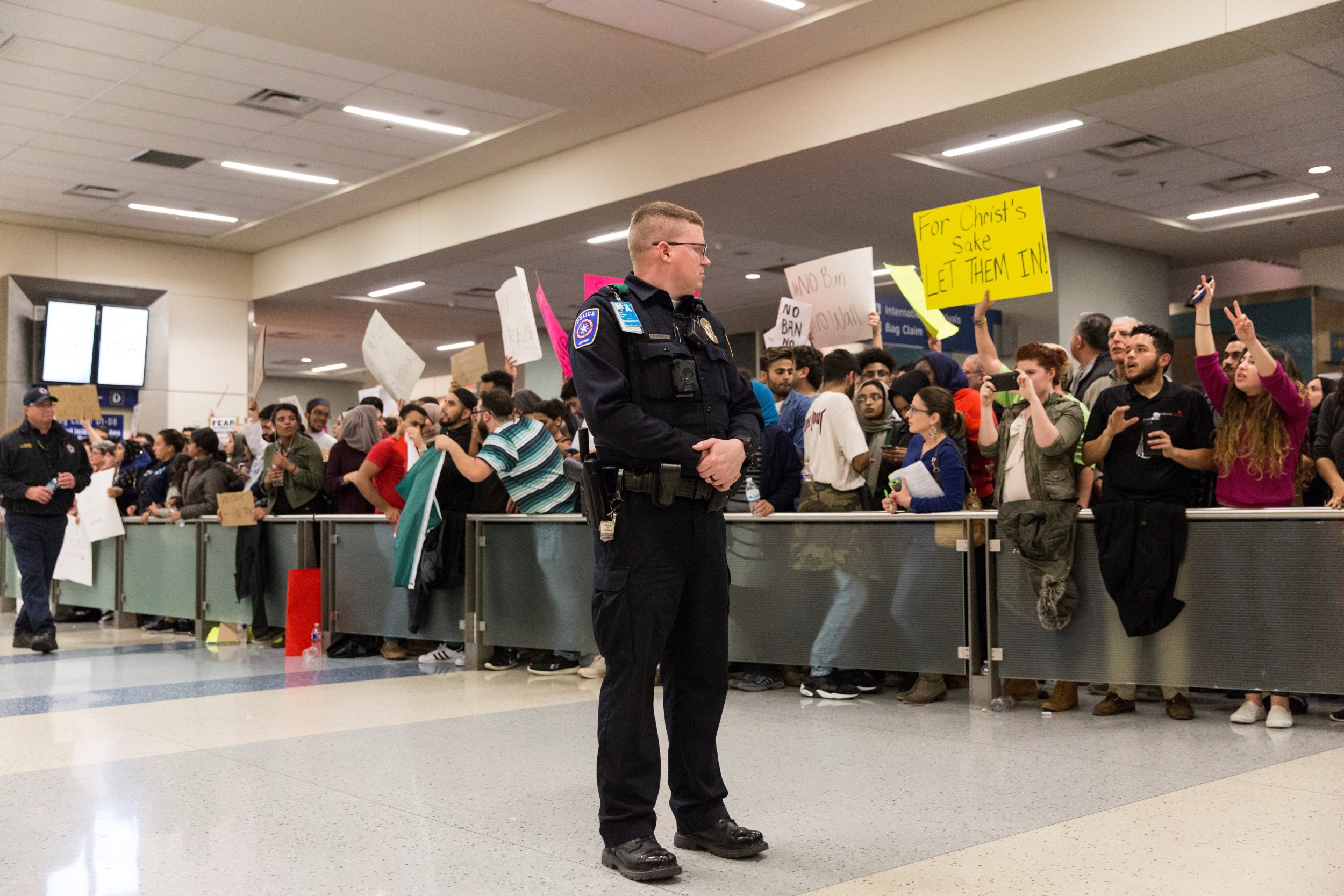
An appeals court in California could decide as soon as Tuesday whether to reinstate President Donald Trump's travel ban on refugees and certain immigrants entering the United States.
Without offering advance notice to most of the parties involved, Trump on January 27 signed an executive order banning Syrian refugees and immigrants living in seven majority-Muslim countries from entering the United States. A week later, acting on a request from Washington state and Minnesota, U.S. District Judge James Robart in the Western District of Washington temporarily halted the order nationwide.
Related: Poll finds majority disapprove of Trump's executive orders
Lawyers for the federal government then requested the San Francisco-based 9th U.S. Circuit Court of Appeals pause Robart's decision. The court quickly rejected the administration's emergency motion, but said it would consider the request after the government filed additional legal briefs—essentially explaining its argument for the travel ban—on Monday. The Justice Department in a brief filed Monday said the suspension of Trump's order by the judge last week was too broad and "at most" should be limited to individuals who were already granted entry to the country and were temporarily abroad or to those who want to leave and return to the U.S.
Now, the appeals court is set to hear oral arguments from both sides Tuesday at 6 p.m. Eastern time. Then, the judges are expected to issue a decision.
The 9th Circuit, viewed as one of the more liberal courts in the country, has various options to pursue. Jayashri Srikantiah, professor of law and director of the Immigrants' Rights Clinic at Stanford Law School, says the appeals court could affirm Robart's ruling, reverse his halt or hold off on issuing a decision until there is an appeal to the preliminary injunction, which is expected in the next few weeks. "It's so speculative at this point. It's hard to know because this case is so obviously high-profile and has such a broad impact on so many people," Srikantiah tells Newsweek. "Hypothetically if it went to the Supreme Court, I think the Supreme Court would have the same options that the appeals court has."
Srikantiah says the situation is atypical because the federal government has appealed a temporary restraining order before the District Court has had a chance to resolve the preliminary injunction, which is the usual business of the court. She adds, "It's anybody's guess what the court is going to do."
A decision to maintain Robart's order would be a major blow to the Trump administration, which has been in power for less than three weeks.
But the legal fight likely won't stop in San Francisco. Some experts predict the case will ultimately reach the U.S. Supreme Court because the losing side likely will request the justices consider the case. The government has indicated that it will appeal if the 9th Circuit declines to consider the issue or decides to keep the hold in place, arguing that national security is at risk. The justices on the high court do not, however, have to agree to hear the case. If that happens, the 9th Circuit's ruling would remain in place.
Trump has slammed Robart, an appointee of former Republican President George W. Bush, calling him a "so-called" judge on Saturday. The president ramped up his criticism of Robart on Sunday by tweeting that Americans should blame Robart and the court system "if something happens." In a meeting with county sheriffs on Tuesday morning, Trump vowed to take the fight in support of the ban through the system, but also said he hopes it doesn't go to the Supreme Court. He added, "Some things are common sense. This is common sense."
Nearly 100 tech companies, including Google, Facebook and Apple, have joined a legal brief opposing Trump's immigration ban, arguing that ultimately American workers and the economy will suffer. Meanwhile, travelers from the seven affected countries are using Robart's ruling to enter the U.S., and the entire situation has led to confusion among tens of thousands of travelers.
Uncommon Knowledge
Newsweek is committed to challenging conventional wisdom and finding connections in the search for common ground.
Newsweek is committed to challenging conventional wisdom and finding connections in the search for common ground.
About the writer
Michele Gorman is a Newsweek political reporter, with a focus on gun policy. She previously worked at msnbc.com, where she ... Read more
To read how Newsweek uses AI as a newsroom tool, Click here.





